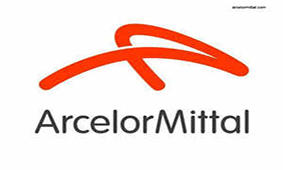
AM Taranto exempt from new Italian restrictions

Taranto produces using a blast furnace, and as such it falls under the clause of the new decree, exempting businesses in a continuous production cycle. If the furnace were to stop, it would result in significant financial damage to the company.
But Arcelor's other steel-producing assets in Italy, as well as all other mills, service centres and producers, are required to temporarily shut down until 3 April.
According to the decree, appointed regional authorities are to decide if the continuous operation of a business is essential or not, and whether it is ‘strategic' for it to continue working. Any producer in the aviation or weapons production chain is exempt from the restrictions.
Other steelmakers are understood to be trying to prove to the respective regional authorities that their operations must continue. In addition, purchasing of scrap from abroad is understood to be continuing, likely as a result of an anticipated shortage in the country owing to reduced scrap flows, as the country is under lockdown.
ArcelorMittal and the Italian government agreed at the beginning of March that the government would take a stake in Ilva. The company last week confirmed to Argus that it had decided to slow output across Europe and in Italy, halving the workforce in Taranto to 3,800 workers in a bid to stop the spread of the virus.
By Lora Stoyanova


Trump weighs using $2 billion in CHIPS Act funding for critical minerals

Codelco cuts 2025 copper forecast after El Teniente mine collapse

Electra converts debt, launches $30M raise to jumpstart stalled cobalt refinery

Barrick’s Reko Diq in line for $410M ADB backing

Abcourt readies Sleeping Giant mill to pour first gold since 2014

Nevada army depot to serve as base for first US strategic minerals stockpile

SQM boosts lithium supply plans as prices flick higher

Viridis unveils 200Mt initial reserve for Brazil rare earth project

Tailings could meet much of US critical mineral demand – study

Kyrgyzstan kicks off underground gold mining at Kumtor

Kyrgyzstan kicks off underground gold mining at Kumtor

KoBold Metals granted lithium exploration rights in Congo

Freeport Indonesia to wrap up Gresik plant repairs by early September

Energy Fuels soars on Vulcan Elements partnership

Northern Dynasty sticks to proposal in battle to lift Pebble mine veto

Giustra-backed mining firm teams up with informal miners in Colombia

Critical Metals signs agreement to supply rare earth to US government-funded facility

China extends rare earth controls to imported material

Galan Lithium proceeds with $13M financing for Argentina project

Kyrgyzstan kicks off underground gold mining at Kumtor

Freeport Indonesia to wrap up Gresik plant repairs by early September

Energy Fuels soars on Vulcan Elements partnership

Northern Dynasty sticks to proposal in battle to lift Pebble mine veto

Giustra-backed mining firm teams up with informal miners in Colombia

Critical Metals signs agreement to supply rare earth to US government-funded facility

China extends rare earth controls to imported material

Galan Lithium proceeds with $13M financing for Argentina project

Silver price touches $39 as market weighs rate cut outlook

















